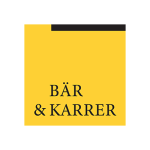In a referendum held on May 19 2019, the Federal Act on Tax Reform and AHV Financing (TRAF) was adopted by the Swiss people and the cantons. The reform includes several measures directed at corporate income taxation, such as the abolition of tax privileges for certain types of companies (status companies) and the implementation of internationally accepted replacement measures such as a patent box or the ability to super-deduct R&D costs (up to 150% of actual costs). The reform also contains tax measures at the shareholder level. The majority of the measures will be in force as of January 1 2020.
Capital contribution principle
The most relevant change regarding the taxation of dividends and share buybacks including the withholding tax consequences is the implementation of restrictions on the capital contribution principle (CCP). The CCP, which was implemented in Swiss tax laws as of January 1 2011, stipulates that the repayment of capital contributions made after December 31 1996 will be treated for Swiss tax purposes as a repayment of share capital or nominal capital. In other words, capital contribution reserves (CCR) can be distributed without being subject to (i) Swiss income tax for Swiss resident individuals holding the shares as private assets; and, (ii) 35% Swiss withholding tax (WHT). According to the Swiss tax authorities, only CCR made by the direct shareholder and separately accounted for in the Swiss statutory accounts qualify as such. Further, the CCR as well as any decreases or increases must be reported to the Swiss Federal Tax Administration (SFTA).
Newly implemented restrictions of the CCP
Starting from January 1 2020, the CCP will be restricted in two ways for companies that are listed on a Swiss stock exchange, such as SIX:
Repayment restriction: A Swiss listed company wishing to distribute (tax-free) dividends from CCR is required to distribute at a minimum an equal amount of (taxable) dividends deriving from other reserves (that is, retained earnings), subject to the availability of such other reserves. If the company fails to do this, half of the dividend amount will be taken from other reserves for tax purposes and will be subject to Swiss WHT and income tax if the shareholder is an individual holding the company's shares as private assets and is taxable in Switzerland. If, for example, the Swiss listed company distributes a dividend of 100 deriving from 60 CCR and 40 deriving from other reserves, the new regulation is violated because the dividend should have been distributed from 50 CCR and 50 other reserves. The tax administration will accordingly qualify half of the difference (= 10) as a dividend from other reserves, subject to WHT (and possibly income tax in Switzerland). Thus, the new rule does not reduce the amount of CCR, but restricts the possibility of such Swiss listed companies distributing only tax-free CCR.
Partial liquidation restriction: In addition, Swiss listed companies that repurchase shares from their shareholders for cancellation (for example, via establishing a separate trading line on the stock market) have to debit or reduce their CCR by at least 50% of the liquidation surplus (purchase price exceeding nominal share value). For example, if the nominal value of one share in the company is 10 and the fair market value is 100, the company needs to reduce its CCR by at least 45 (half of the liquidation surplus of 90) if it purchases and cancels this share. Generally, share buybacks via the second trading line are made by shareholders who are able to reclaim the full Swiss WHT and thus, these buybacks were only financed by other reserves, triggering Swiss WHT on the difference between purchase price and nominal value and saving the amount of CCR. This possibility will now be restricted for Swiss listed companies.
No restrictions will apply to non-Swiss listed companies, meaning, all non-listed companies, in particular small and mid-sized or family-owned groups, and foreign-only listed companies.
Exceptions from the CCP restrictions for 'foreign' CCR
The CCP has been important for attracting foreign investments via Switzerland and establishing Switzerland as a new top holding location, for example, with contributions of shares in foreign groups into Swiss companies (share-for-share exchanges). In order to remain attractive mainly from a WHT perspective and to provide shareholders with a certain planning security, the above-mentioned repayment restriction does not apply to CCR that are or were created by foreign investments (foreign CCR): CCR that are created by way of cross-border quasi-mergers (contribution of shares in a foreign entity into a Swiss entity against CCR) or cross-border drop down of foreign (operational) assets will qualify as foreign CCR. The same applies to CCR stemming from other qualifying restructurings (spin-offs/cross-border mergers of foreign operations or immigration of foreign entities into Switzerland) after February 24 2008, the date of the referendum approving the introduction of the CCP in Switzerland. After this date, taxpayers could rely on the CCP rules in Switzerland.
Swiss listed companies can distribute such foreign CCR without being required to additionally distribute other reserves in the same amount. The distinction between 'foreign' and 'other' CCR will be important under the new rules for distributions. Another exception applies to distributions to minimum 10% corporate shareholders.
It should be noted that these exceptions do not apply to the partial liquidation restriction and thus, share buybacks for cancellation will reduce the CCR, irrespective of their qualification as foreign CCR.
Outlook and recommendations
The SFTA is working on a circular containing further guidance for the new rules. Swiss listed companies that could possibly fall under the differentiation between foreign and other CCR will have to split up their existing CCR accounts into two and retrace CCR movements starting from February 24 2008 accordingly. In favour of the taxpayer, it is to be assumed that dividends from CCR within the timeframe of February 24 2008 to January 1 2020 are stemming from 'other' CCR and thus are not reducing foreign (privileged) CCR. The companies should request a confirmation from the SFTA for the respective amounts of foreign and other CRR and the tracking of the use of such CCR. Based on available information and subject to the final circular, companies having both foreign and other CCR should be free to choose which CCR they want to use for future distributions and may argue to reduce their other (non-foreign) CCR with future partial liquidations in order to save their beneficial foreign CCR.
Certain Swiss listed entities have converted part of their existing CCR into nominal share capital in order to mitigate the implications of the future restrictions. Such conversion could, however, trigger one percent Swiss stamp duty, if the CCR have not been subject to stamp duty upon creation, for example, due to a reorganisation exemption. Nominal share capital created by conversion of CCR after the implementation of the new rules will be subject to the new restrictions in the same way as the converted CCR. Since the new rules will apply as of January 1 2020, the distribution of other CCR or share buybacks for cancellation against other reserves would still be possible until the end of 2019 and thus, an acceleration and execution of such actions still in 2019 could be considered. For future cross-border transactions of Swiss listed companies, the analysis of whether foreign CCR may be created will be relevant and should be confirmed in an advance tax ruling. In summary, the planning of distributions and share buybacks for cancellation and their implication on the amount of foreign and other CCR and other reserves will be essential for Swiss listed companies in the future.

|

|
Susanne Schreiber |
Kerem Altay |

